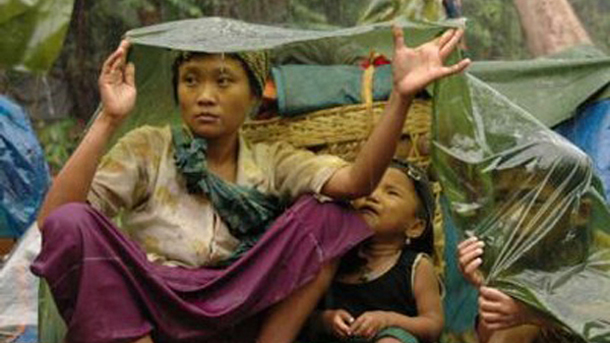Norway’s Ministry of Foreign Affairs has denied reports that an Oslo-led peace project in Burma has been temporarily suspended, but confirmed that it will not move forward with new activities in areas controlled by the Karen National Union (KNU) until the group has had a chance to resolve recent internal divisions.
In a statement sent to The Irrawaddy on Wednesday, Foreign Ministry spokesperson Kjetil Elsebutangen said that “there have been no requests from any of the parties for suspension” of the program, formally known as the Myanmar Peace Support Initiative (MPSI).
“We do understand however that the KNU leadership and their constituencies in this situation need time for internal consultations, to discuss further strategy, and new activities will not be initiated in KNU controlled areas for the time being,” Elsebutangen said in the statement.
He added that no changes would be made to MPSI activities in other parts of Burma at this time.
The statement came in response to a request for a comment on an article published by the Democratic Voice of Burma (DVB) on its website on Wednesday that appeared to suggest that the MPSI had been suspended. The article has since been removed from the DVB website without explanation.
The fate of the MPSI will be closely followed by many aid workers and refugees based on the Thai-Burmese border. Launched at the beginning of this year, the ambitious project, if fully implemented, could significantly change the way aid is distributed in eastern Burma, an area plagued by conflict for decades.
The Norwegian initiative comes at a time of relative peace in the region, following a series of tentative ceasefire agreements reached earlier this year between the Burmese government and the KNU, the Shan State Army South (SSA-South) and other smaller armed groups from the Karenni and Mon communities.
Since the MPSI was first announced, representatives from Karen and Shan community-based organizations have voiced concern that Norway’s government is pushing ahead with the project without taking into consideration the needs of large numbers of displaced ethnic people whom the initiative aims to help. Activists have cited the Norwegian government’s failure to translate information about their project into ethnic languages as further proof that Oslo is about to spend large sums of money without fully thinking the project through.
Last week, Norway’s Chargé d’Affaires in Burma, Arne Jan Flølo, told The Irrawaddy via email that the MPSI may undertake to translate key documents outlining the initiative into ethnic languages at a later date.
“We have not received requests, as of yet, on translating into Shan and Karen. That is something we of course would look into if this would be raised,” he said.
This, however, contradicts information received from ethnic representatives from concerned community groups, who say that the language issue has already been raised with the representatives of the MPSI.
“We have already asked that they translate these documents into local languages including Karen and Shan. I think they should consider doing this as soon as possible,” said Paul Sein Twa, a longtime community activist with the Karen Environmental Social Action Network.
Currently, the Norwegian embassy in Thailand has the both English- and Burmese-language versions of the documents outlining the project on its website.
Observers note that the failure to provide this information in the Karen and Shan languages means that many in the war-affected ethnic minority communities know little about decisions and policies that will impact them.
Although some Karen and Shan refugees and internally displaced people (IDPs)—particularly those who have spent time in towns and cities—do speak Burmese fluently, those who have lived their entire lives outside of government controlled territory often speak only their native ethnic languages.
Even some of the senior leaders of the ethnic armed groups have a limited command of the Burmese language. SSA-South strongman Yawd Serk, for instance, reportedly speaks little if any Burmese, while KNU Secretary General Zipporah Sein, who does speak some Burmese, normally gives interviews to Burmese-language media in Sgaw Karen (as she did during this joint press conference with Burmese opposition leader Aung San Suu Kyi earlier this year).
However, translating the documents would just be the first step to ensuring the full participation of affected communities in the Norwegian initiative, say observers.
“We also need to think about the dissemination of this information,” said Paul Sein Twa, noting that few refugees and IDPs in border areas have access to the Internet.
“I think the project has a good potential to help people affected by the conflict, but it now appears they are rushing and this could cause more problems,” added the veteran Karen community and environmental activist.
In a policy paper issued on Monday, the Burma Partnership, a coalition of national and regional organizations focusing on Burmese issues, reiterated its calls for the MPSI to include “a truly grassroots consultation process where all the relevant stakeholders who will be impacted by peace funds can participate in the research, planning, implementation, monitoring and evaluation of development projects.”
The MPSI has already been beset by concerns about its activities, fueled in large part by its failure to fully communicate its intentions.
Last month, for instance, Shan refugees at the unofficial Koung Jor camp in the far north of Thailand’s Chiang Mai Province expressed grave concern about a door-to-door survey sponsored by the Norwegian Refugee Council and the MPSI that was interpreted by many of the refugees and their community leaders as the beginning of a resettlement process.
Speaking to The Irrawaddy, Norway’s Ambassador to Thailand and Burma Katja Christina Nordgaard insisted that the “MPSI is not about the returning of refugees” and called the confusion in Koung Jor the result of “a misunderstanding.”

















